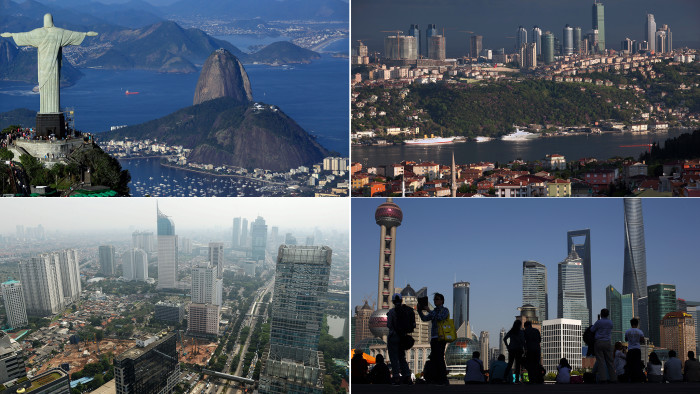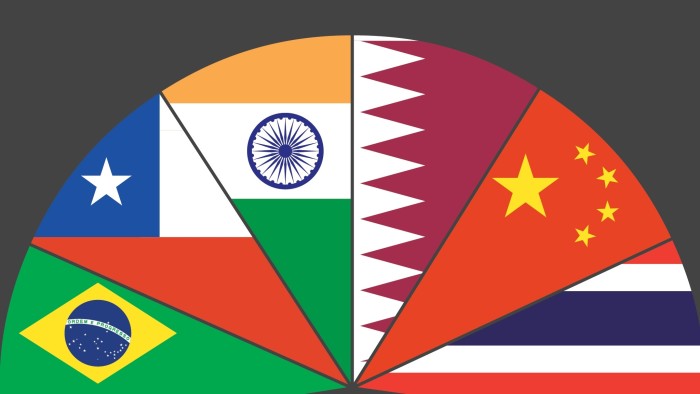Q&A: What is an emerging market?

Roula Khalaf, Editor of the FT, selects her favourite stories in this weekly newsletter.
What is an emerging market?
The term began as a euphemism for the pejorative-sounding “third world” but, as the FT argues, “emerging market” now stands for a haphazard collection of countries with varying economic sizes and growth rates.
The classification matters primarily because of index providers such as MSCI and JPMorgan that have a major influence over how international portfolio investors allocate their money. An estimated $10.3tn is invested in so-called emerging markets.
This helps explain why Greece’s stock market actually rallied when the country was demoted from developed to emerging status by MSCI in November 2013. Less than $200m of passive money tracking developed market indices would seep out of Greece as a result, according to one HSBC estimate, while inflows from emerging markets investors could top $1bn.
Just how many emerging markets are there?
According to the International Monetary Fund 152. Just 23, says MSCI.
The IMF classification basically comes from dividing the world in two: advanced economies, and emerging and developing economies. Its criteria are per capita income, export diversification and degree of integration into the global financial system.
MSCI, by contrast, approaches the issue from the point of view of investible equities, so its division of the world into developed, emerging and frontier markets is based on the level of market access to foreign investors, and standards of size and liquidity.
MSCI offers a Frontier Emerging Markets Index, with 163 equities from 28 countries — of which four: Colombia, Egypt, Peru and the Philippines are also represented in its Emerging Markets Index. Launched in 1988 it includes the shares of 838 listed companies from just 23 countries including 85 per cent of the market capitalisation of equities in each nation, weighted according to free float (the shares available to investors).
Do emerging markets actually emerge?
Emerging markets
Redrawing the world map

It is one of the most powerful definitions in the world and accounts for investment of more than $10tn. But with developing markets overtaking developed ones in some areas the term has become obsolete, say critics
Continue reading
Not really. Argentina once had developed status and lost it — as did Greece. Japan and Singapore are widely said to have gained developed status since the second world war, but others, such as Venezuela, seem to be “submerging” instead in that its economy has imploded under policy mismanagement, with soaring inflation, a collapsing currency and widespread shortages of the most basic household essentials.
At issue is an idea implicit in the emerging markets concept: that those economies are on the way up, riding an escalator to developed market status. Some may be. But others are not.
Why all the fuss about this term now?
Because investors, economists and commentators are coming to the conclusion that it has outlived its usefulness and has actually become counter-productive.
Letter in response to this report:
Rethink the grouping of world economies / From Tom Wynter
Comments